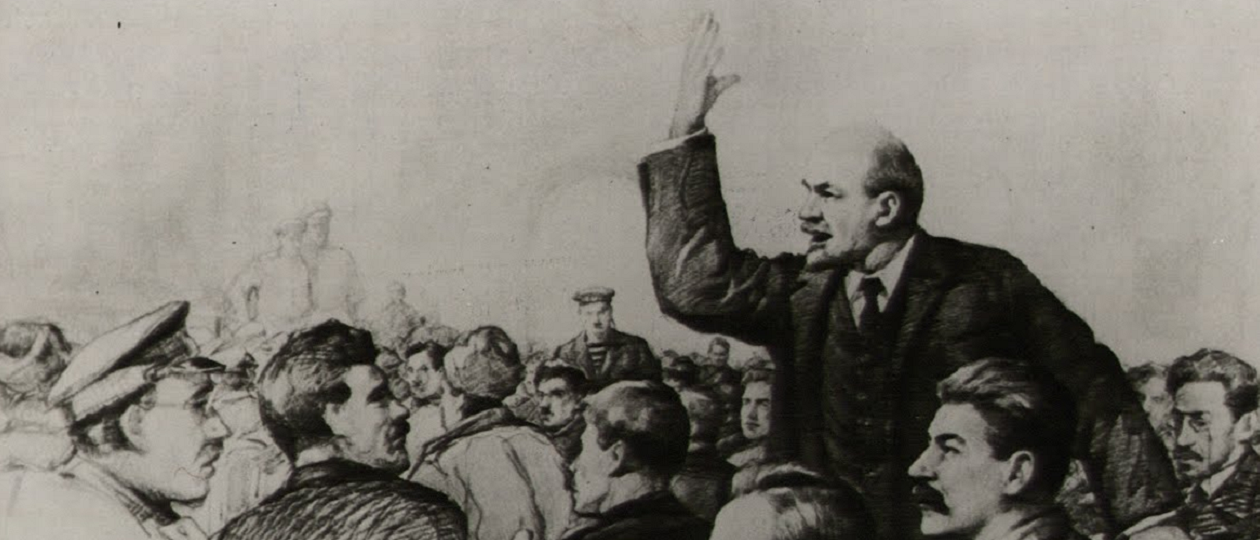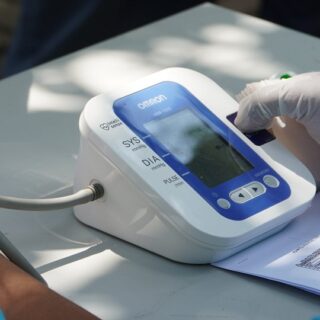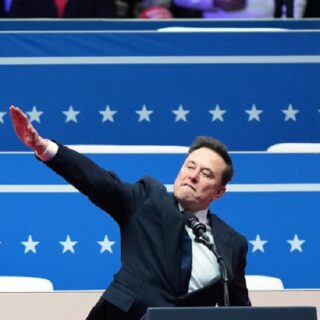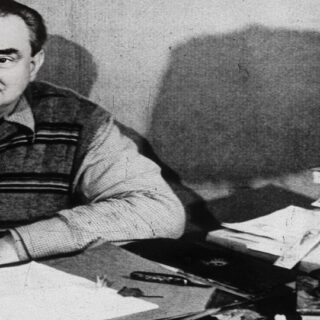
Because political terrorism in the Russian Empire remains the Great Unknown, we will go on having huge difficulties in understanding many tendencies in terrorism in today’s world.
While it is true that terrorism happens under specific historical circumstances in different countries and periods during different periods, the fact remains that the history of political terrorism in Russia is the history of the origins and development of mass terrorism in modern history.
In the last article, we looked at the sheer massiveness of political terrorism in Russia particularly between 1901-1911 when terrorists killed or wounded about 17,000 people. [1, p. 21] Russian terrorists achieved a European-wide record in the number of terrorist casualties. This record was not broken for decades.
We also looked at how terrorism in the early 20th century represented a crowded playing field of practitioners, supporters, and opponents and noted that many left-wing parties and movements practiced terrorism.
Most terrorist acts in the wave of terrorism from 1901-1911 happened during the First Russian Revolution of 1905-1907 and in the years following the defeat of the revolution. Misinterpretation of the revolution is one of the main reasons why terrorism in the Russian Empire remains such a Great Unknown.
One statement by Vladimir Lenin in 1920 determined how Soviet historians interpreted the Revolution of 1905-1907 for decades. As Lenin said <<without the “dress rehearsal of 1905, the victory of the October Revolution of 1917 would have been impossible. >> Some foreign historians also took this approach. American historian Crane Brinton wrote <<in 1905-1906, because of the defeat in a war with Japan, something of a dress rehearsal for the great revolution (i.e. 1917) took place. >> [3, p. 69]
The Revolution of 1905-1907 was never seen as an independent revolution and both Soviet and foreign historians often ignored the elementary fact that it was the first major European revolution of the 20th revolution. It was also the first major revolution with a strong terrorist component.
Although more post-Soviet and foreign historians are looking at the Revolution of 1905-1907 as an independent revolution and not just a dress rehearsal for 1917, certain publicists and writers in Russia today are describing the Revolution of 1905-1907 as the dress rehearsal for the “Golgotha of 1917”, in other words, the February and October Revolutions of 1917.
Soviet historians had to work under rigid Communist Party ideological limits. The whole purpose of writing the history of 1917 was to show why the Bolsheviks triumphed and why their internal and external enemies were defeated. This meant showing how already in the Revolution of 1905-1907, the Bolsheviks were already triumphing over their enemies and this victory foreshadowed 1917.
Lenin’s remark about the Revolution of 1905-1907 as a dress rehearsal for 1917 had its consequences. As Soviet and later Russian historian S.V.Tiutiukin noted <<In accordance with Lenin’s assessments, the events of 1905-1907” were characterized as a “dress rehearsal” for the October Revolution of 1917 and as a people’s revolution of a new type in which the proletariat, led by the Bolshevik Party, became the leader (hegemon) of the revolution. >> [4].
Thanks to this schematic approach, historians idealized the proletariat and Bolsheviks, demonized non-Bolshevik parties, especially socialist and liberal parties, ignored the reformist actions of the government and the degree of mass counterrevolutionary movements. [4, cc. 4-5]
Soviet historians ignored the fact that Bolsheviks practiced terrorism in the revolution and emphasized how the Socialists-Revolutionaries (SRs) and anarchists by practicing terrorism objectively served the reactionaries. One quotation by Lenin in 1902 condemning SR terrorism was used continually to show that the Bolsheviks did not use terrorism.
Lenin said << because the Socialist-Revolutionaries (SRs), by including terrorism in their programme and advocating it in its present-day form as a means of political struggle, are thereby doing the most serious harm to the movement, destroying the indissoluble ties between socialist work and the mass of the revolutionary class. No verbal assurances and vows can disprove the unquestionable fact that present-day terrorism, as practised and advocated by the Socialist-Revolutionaries, is not connected in any way with work among the masses, for the masses, or together with the masses; that the organisation of terroristic acts by the Party distracts our very scanty organisational forces from their difficult and by no means completed task of organising a revolutionary workers’ party; that in practice the terrorism of the Socialist-Revolutionaries is nothing else than single combat, a method that has been wholly condemned by the experience of history. >> [5] Lenin meant:
1. Terrorism was not connected with revolutionary work among the people.
2. Terrorism distracted revolutionaries and the people from the mass struggle against tsarism. It turned people into passive observers who would only show excitement when the next terrorist act happened.
3. Terrorism was a specifically intelligentsia form of political struggle. It was a tactic created by a social stratum that had no support from the people and was a tactic born out of despair and had always been a failure.
Many foreign historians have taken Lenin’s 1902 quote at face value. However, a quotation in 1906 not only repeated some of Lenin’s 1902 comments about terrorism, but also seemed to contradict his comments.
<<We will make a slight digression about the guerilla operations by the fighting squads. We think it is wrong to put these operations on a par with the old type of terrorism. Terrorism consisted in acts of vengeance against individuals. Terrorism was a conspiracy by groups of intellectuals. Terrorism in no way reflected the temper of the masses. Terrorism never served to train fighting leaders of the masses. Terrorism was the result—and also the symptom and concomitant—of lack of faith in insurrection, of the absence of conditions for insurrection.
Guerilla operations are not acts of vengeance, but military operations. They no more resemble adventurous acts than the harassing of the enemy’s rear by raiding parties of huntsmen during a lull on the main battlefield resembles the killing of an individual in a duel or by assassination.
Guerilla operations conducted by fighting squads—formed long ago by Social Democrats of both factions in all the important centres of the movement and consisting mainly of workers—undoubtedly reflect, clearly and directly, the temper of the masses. Guerilla operations by fighting squads directly train fighting leaders of the masses. The guerilla operations of the fighting squads today do not spring from lack of faith in insurrection and are not conducted because insurrection is impossible; on the contrary, they are an essential component of the insurrection now in progress.>> [6]
Lenin repeated his 1902 comments about terrorism being unconnected with the mass struggle and that terrorism was a specifically intelligentsia form of political struggle as practiced by the People’s Will and the SRs. However, he argued that partisan operations as conducted by Social Democratic fighting squads (boevye otriady) were a legitimate form of proletarian armed struggle. Lenin was endorsing terrorism by Social Democrats provided it was done by fighting squads of workers and not by conspiracies of the intelligentsia. Timing was relevant—since Russia was engulfed by revolution, terrorism and mass violence were mutually appropriate forms of struggle.
What made Lenin such an advocate of terrorism was a combination of factors. Anna Geifman suggested that because terrorism had become a mass phenomenon, Lenin could not oppose it. Thus, Lenin urged his followers to form combat detachments to kill police officers, spies, and members of the Black Hundreds and to practice partisan warfare (1, pp. 90-91).
Lenin feared that the intelligentsia and masses would follow the SRs because every major terrorist attack seemed to bring the regime one step closer to collapse or ready to make more concessions. If the Bolshevik party leader had become such an ardent fan of terrorism, then rank-and-file Bolsheviks needed little urging to practice political and economic terrorism. Bolshevik terrorists carried out assassinations and expropriations.
Their targets included police spies, fellow Bolsheviks accused of treason, officials, members of right-wing organizations, even workers who opposed going on strike or who belonged to right-wing groups. (1, p. 92).
The Bolsheviks in the revolution became indistinguishable from SRs, Maximalists, and anarchists. The false interpretations of the Revolution of 1905-1907 as merely a dress rehearsal for 1917 and falsifications about the Bolsheviks and terrorism are two more reasons why terrorism in the Russian Empire remains the Great Unknown.
Sources Used
- Geifman, Anna. Thou shalt kill: revolutionary terrorism in Russia, 1894-1917. Princeton NJ: Princeton University Press, 1993. Русский перевод в электронной форме. Гейфман, Анна. Революционный террор в России, 1894— 1917. Москва: КРОН-ПРЕСС, 1997. https://royallib.com/book/geyfman_anna/revolyutsionniy_terror_v_rossiihtml
- Ленин, В. И. Детская болезнь “левизны” в коммунизме (Left-Wing Communism: an Infantile Disorder). Полное собрание сочинений, Издание пятое. Том 41, 1920 г. http://uaio.ru/vil/41.htm
- Brinton, Crane. The anatomy of revolution. Revised and expanded edition. New York: Vintage Books, 1965.
- Тютюкин, С. В. Предисловие. Первая революция в России: взгляд через столетие. (Introduction. The First Revolution in Russia: a Glance over One Century) Москва: Памятники исторической мысли, 2005.
- Lenin, V. I. Why the Social-Democrats Must Declare a Determined and Relentless War on the Socialist-Revolutionaries (February 1902) https://www.marxists.org/archive/lenin/works/1902/jul/00.htm
- Lenin, V. I. The present situation in Russia and the tactics of the workers’ party (February 1906) https://www.marxists.org/archive/lenin/works/1906/feb/07.htm





